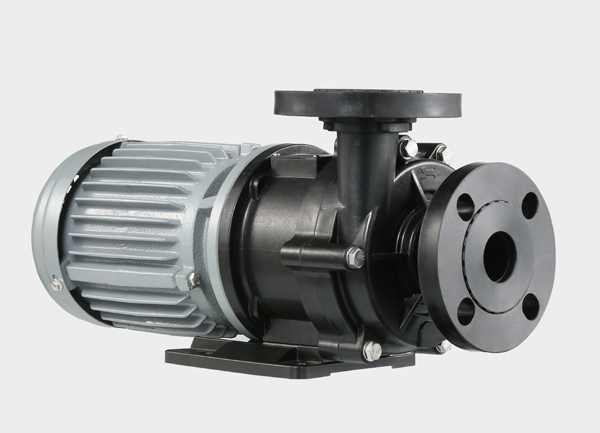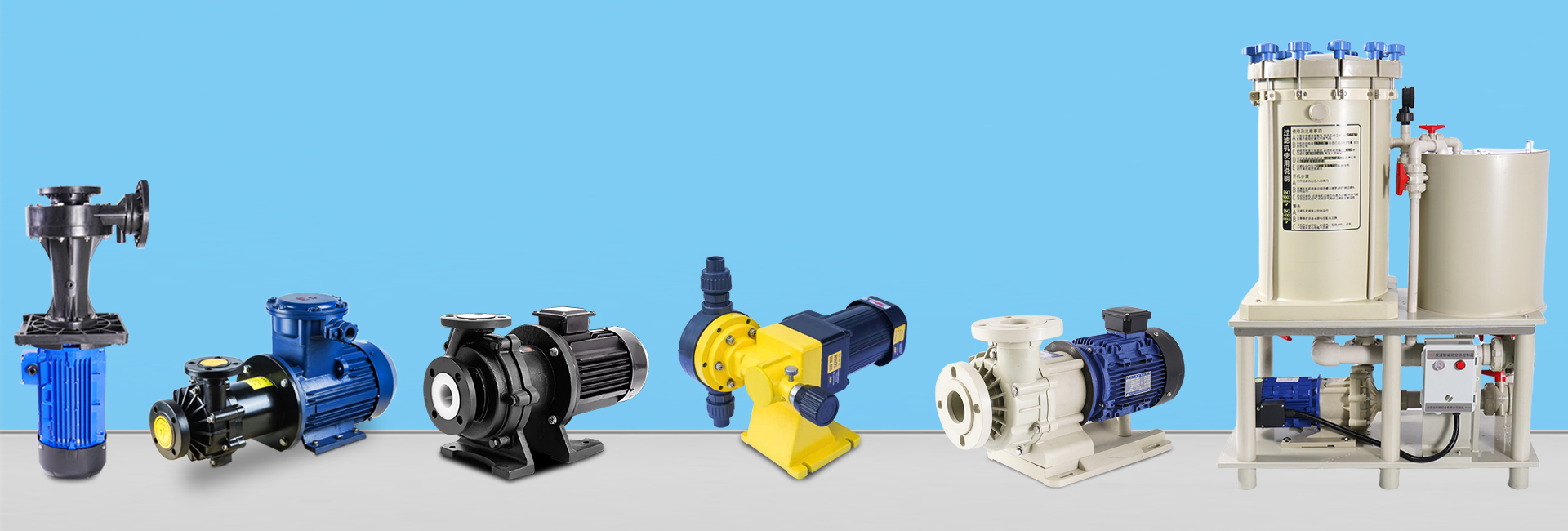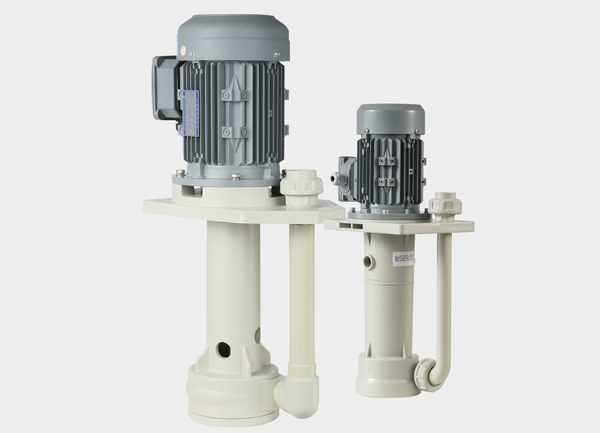Insufficient flow rate is one of the most common problems during the operation of magnetic drive pumps used in chemical, pharmaceutical, and water treatment industries. The issue may result from mechanical, hydraulic, operational, or installation-related factors.
Below are the main causes and corresponding solutions 👇

🚧 1. Suction System Issues
Inlet or Filter Blockage
Cause: The suction pipe or filter is clogged with debris, reducing liquid intake.
Solution: Clean or replace the filter and remove any obstructions in the pipeline.
Excessive Suction Lift or Undersized/Long Suction Pipe
Cause: High suction resistance lowers the inlet pressure and may cause cavitation.
Solution: Shorten the suction pipe, increase its diameter, and reduce the pump installation height.
Air Leakage in Suction Line
Cause: Loose flanges, poor sealing, or cracks in the suction pipe allow air to enter.
Solution: Inspect sealing surfaces, replace gaskets, and tighten connections.
⚙️ 2. Pump Body Problems
Impeller Worn or Damaged
Cause: Long-term operation causes corrosion or wear of the impeller, reducing efficiency.
Solution: Replace or repair the impeller.
Magnetic Coupling Slippage
Cause: Overload, high-viscosity liquid, or rotor jamming causes the inner and outer rotors to decouple.
Solution: Check for rotor blockage, bearing wear, or excessive load; remove any foreign objects.
Isolation Sleeve Scaling or Damage
Cause: Scale buildup on the containment shell reduces magnetic efficiency and narrows flow passage.
Solution: Clean the isolation sleeve regularly or replace it if necessary.
Bearing Wear or Seizure
Cause: Poor lubrication, solid particles, or dry running cause sliding bearing failure.
Solution: Replace the bearing and avoid dry running or particle contamination.
🔋 3. Motor and System Matching Issues
Motor Running Below Rated Speed
Cause: Low voltage, unstable frequency, or motor malfunction.
Solution: Check power supply and confirm the motor runs at rated speed.
Mismatch Between Pump and System Resistance
Cause: Increased pipeline resistance or partially closed valves restrict flow.
Solution: Check valve positions and system resistance; adjust as needed.
💧 4. Operational Issues
Inlet Valve Not Fully Opened
Solution: Make sure the inlet valve is completely open and adjust the outlet valve appropriately.
High Viscosity or Low Temperature of Medium
Cause: High-viscosity liquids significantly reduce flow rate.
Solution: Heat the liquid or select a pump suitable for viscous fluids.
Operating Conditions Deviate from Design Point
Cause: Running the pump away from its design flow range reduces efficiency.
Solution: Adjust system conditions or use a properly sized pump.
✅ Summary
| Category | Typical Cause | Recommended Solution |
|---|---|---|
| Suction System | Air leakage, blockage | Check sealing, clean pipelines |
| Pump Body | Worn impeller, coupling slip | Replace parts, inspect load |
| Motor/System | Low speed, voltage issues | Check motor and power supply |
| Operation | Valve closed, high viscosity | Adjust operation parameters |
🌐 Conclusion
When a magnetic pump experiences low flow, start troubleshooting from the suction system, then check the pump body, motor, and operating conditions step by step. Proper maintenance, correct installation, and matching system parameters are essential to ensure stable performance and long service life of magnetic drive pumps.







